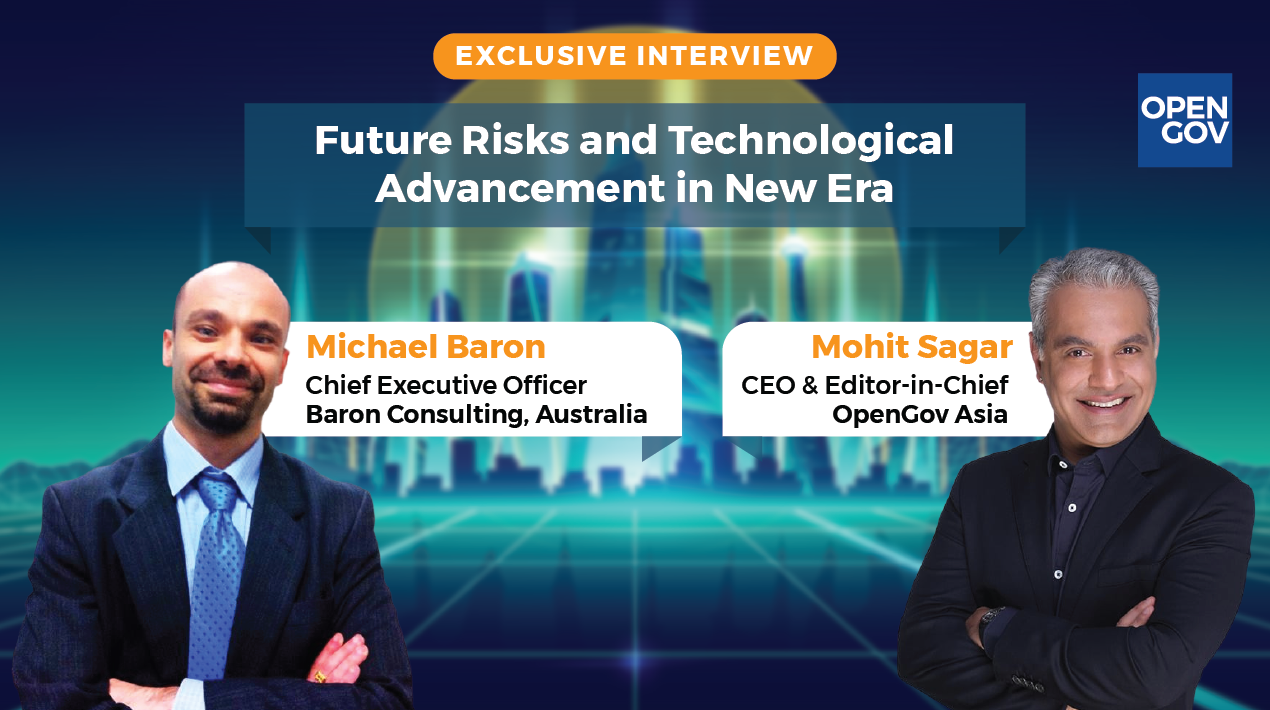
Adapting, adopting and shifting methods, models and processes are unavoidable as technology develops and advances. Manufacturing robots, artificial intelligence and machine learning are just a few examples of rapidly evolving new technologies.
These technologies have the potential to save costs while enhancing output and quality. They have a vast scope and the potential to revolutionise existing enterprises and personal lives. They can make people’s lives easier while also requiring less human engagement.
Companies have realised that such cutting-edge solutions can take over specific roles and increase operational accuracy, production and efficiency. Automation and digital improvements have improved analytical, technical, and management capacities. Even today, many large technology organisations have reached a broad economic scale without a large staff base.
As a result, the workforce and skillset needs will change. Organisations require fewer people in roles managed by tech creating a greater need for employees with specific abilities.
The impact and opportunities

In an exclusive interview with Mohit Sagar, CEO and Editor-in-Chief OpenGov Asia, Michael Baron, CEO & Director of Baron Consulting Group, Singapore, believes technology changes will be positive for most people. But technological advancement may disappoint others because they may be concerned that technologies may replace their jobs.
“There will be proactive people and that people who are reactive. It is important to understand that further development is essential for people, companies and governments, to keep the nations and businesses competitive. So, I think the future will positively impact those who want to embrace the technologies. We need to focus on development rather than on keeping everyone happy,” explains Michael.
People can embrace the new technology with better utilisation. As an example, he shared how people will have gotten used to a pass-card ticketing system. Some time ago, the technology was introduced in several countries in Southeast Asia and Australia. People had to learn to adapt to the new ticketing system if they wanted to use the public transport system. While initially challenging for many, people have gotten used to it and, indeed, prefer it.
Baron urges people to view new technology as a unique opportunity. Change happens all the time in almost all spheres – sometimes rapidly and other times gradually. Businesses need to adjust their service offerings based on technological developments. It may require performing specific technology-related tasks for the companies which are no longer relevant.
“I recall a very old Chinese saying that every crisis is an opportunity. You can say that I lost my job and I lost my business proposition many times and I don’t see it as drama. I see it as an opportunity. See it as an interesting experience, a natural transformation,” Baron offers.
From a personal perspective, the analytics engine, for instance, has helped him to become a better chess player. The tools can help him to perform better in online chess games by analysing his game, understanding his mistakes and what opportunities he misses and suggesting what he should learn and how he can do better next time.
The same idea goes for organisations or governments. The private and public sectors can do better through digital transformation and utilise technological advancement to maintain their position in the marketplace. It’s not a matter of enjoying it or not embracing the norm, it’s a matter of survival. It’s a matter of remaining relevant, of addressing the challenges by delivering better.
According to Baron, what is happening now is that traditional players are losing market share very fast and possibly don’t even understand the market anymore. So, it is vital to reshape themselves, adopt new goals and embrace new technology.
As a big fan of predictive analytics, he believes that analytics can break into the past to build a better future. Citing a Greek philosopher that said history repeats itself implies this results in variations in a range of operations. So predictive analytics will play a role in calculating the future based on what happened in the past and emulate it for future problems.
In terms of challenges, Baron believes that security, privacy and controls will still be a big problem in the future. Ethical factors are also emerging around the globe today. Organisations with international presence have to comply with all the multiple countries’ respective laws and regulations regarding data ownership and management.
Sooner or later, organisations need to ensure compliance. Even though technology tends to develop faster than legal frameworks, ultimately all countries create regulatory frameworks.
Cultural spirit and political drive
Baron is convinced that both the private and public sectors can drive the technology improvements. Whether it is public or private-driven innovation, it is essential to keep forward-facing if an organisation or a nation intends to survive.
He acknowledges several governments’ efforts to stay ahead of the digital transformation journey, such as Japan, China and Singapore. These countries demonstrate how they can be leaders through cultural spirit and technology utilisation rather than only depending on their natural resources.
After World War Two, Japan’s economy was in a very difficult situation, dealing with the devastation and a lack of natural resources. They faced these challenges head-on by utilising technology and aggressively pursuing digital solutions. Eventually, they not only became a leading economy but were a global benchmark for development.
China, too, has a robust digital and technology vision for the country and has seen remarkable success. From a largely agrarian/rural society, it is now the second-largest economy worldwide. It is a great example of how political will plays a significant role in driving technology-enabled progress.
As for Singapore, the country has become a leading exponent of technology and digital innovation. Compensating for a lack of resources with heavy investment in technological development, innovation and education. They have harnessed their multicultural heritage and been wise in how they use their existing resources. Infrastructure, policies and pathways have made the nation a preferred destination for investment and international tech workers.
LKYGBPC entrepreneurial pathway
Technology development has a massive impact on future employment, hence the entrepreneurial path is one of the solutions to answering the challenge. As a member of the International Judging Panel (IJP) for the Lee Kuan Yew Global Business Plan Competition (LKYGBPC), Baron encourages people not just to embrace the ideas of others but to work with their ideas. He believes that everybody has something to bring to the table.
Teaching about technologies and related subjects, helping people acquire the necessary skills and traits, and providing the right environment is essential to foster entrepreneurship. But a little more is needed to create a culture of entrepreneurship.
He considers the international competition a fantastic way to bring a lot of global talent together to actualize their dream, to be inspired, express their concerns,and to find solutions. The competition creates the right environment to put ideas together and tailor them to suit specific marketplaces.
The competition is a chance for people with ideas to organise themselves, present their ideas to the big wide world and have a shot at being successful. To Baron, there should be more calls for international competitions they allow ideas to travel beyond the borders to create a better future for the world.
















